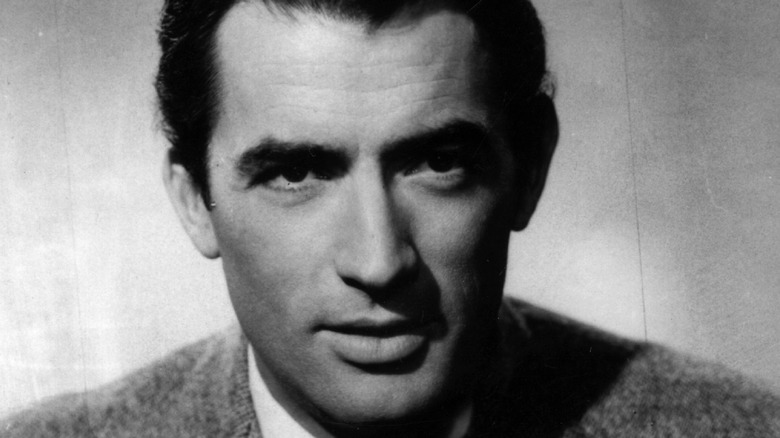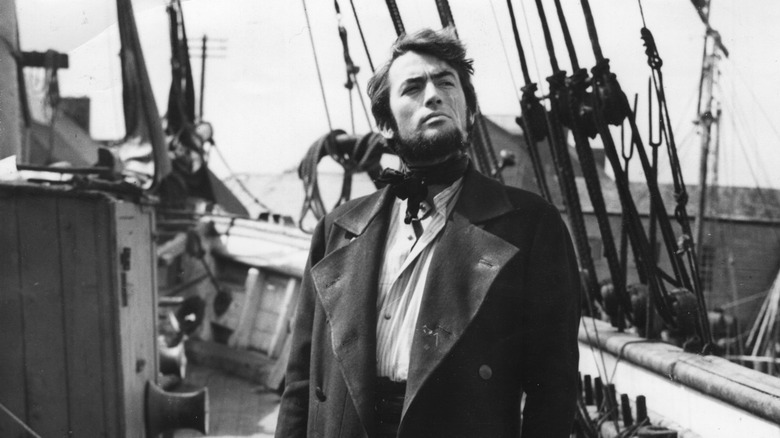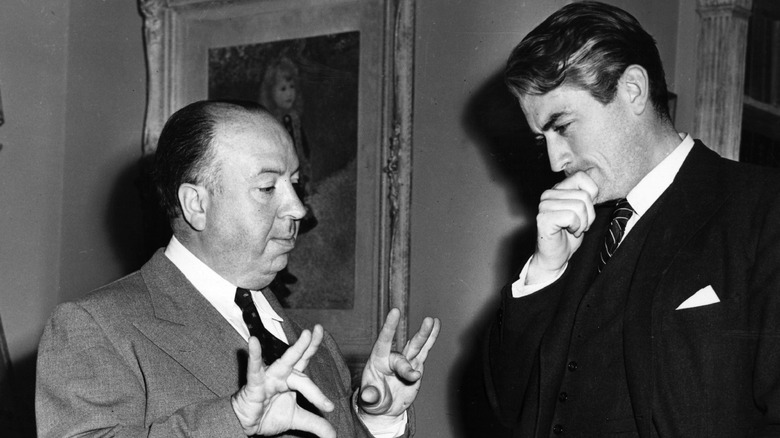Gregory Peck's Relationship With President Lyndon Johnson Almost Landed Him A Distinguished Job
Most people recognize Gregory Peck from such movie classics as "To Kill A Mockingbird," "How the West Was Won," and "The Omen." His role as Atticus Finch in the adaptation of "To Kill a Mockingbird" earned him an Academy Award for Best Actor in 1962 (via Britannica). Born of English, Irish, and German descent, Peck spent a lifetime committed to politics as well as acting.
Peck was horrified by the establishment of the House Un-American Activities Committee, which got its start in 1935 and was meant to expose communist Americans, including those on the infamous Hollywood Blacklist (via Los Angeles Times). Believing that the pen (and perhaps his deep and affecting voice) is mightier than the sword, Peck wrote numerous letters advocating for the importance of the arts. One of the people he would write was President Lyndon Johnson who, in turn, had a very exclusive political job opportunity for the actor in mind.
The Irishman
Democratic politicians were enamored with the stoic Peck and some even encouraged him to run for office. While he avoided running for governor or higher office, he did commit to creating a series of political ads to discourage the appointment of a conservative Supreme Court judge (via Los Angeles Times).
After attending a White House dinner with his four sons in 1965, Peck penned a letter to President Johnson, thanking him and saying that had he had the opportunity to speak he would have sung the praises of the newly established National Endowment for the Arts (via The National Archives). The dinner marked the occasion of two separate government entities (including the National Endowment for the Humanities) that were intended to preserve the culture of the United States (via National Endowment for the Humanities).
President Johnson was so impressed with Peck's demeanor and candor that the actor told the Irish America Magazine in 1997 that the president said he would have made Peck Ambassador to Ireland had he served a second term (via IrishCulturesandCustoms.com). Peck's father was an Irish immigrant, and the actor always maintained a close connection to his Irish roots. Peck was also named Irish American of the Year by Irish America Magazine. He traveled frequently to his mother's native country, and even took the time to get to know his ancestors and relatives. In April of 2000, he received an honorary doctorate from the National University of Ireland.
A lifelong commitment to the arts
Peck's stoic and fair screen persona impacted his personal life as well. Despite the fact that Peck was a champion for Democratic causes throughout his career, conservatives like Charlton Heston were fans nonetheless. Of Peck, Heston said (via Los Angeles Times), "He has the rarest of all qualities in this town: He is truly a gentleman. And I am honored to know him." Peck's ability to reach across the aisle and make a positive impression seems to have kept him off of the Hollywood blacklist.
Until his death in 2003, Peck remained committed to the "greatness" of the American arts, particularly when it came to film (via The National Archives). He strongly felt that the American people must have "the best" when it came to the arts, and told President Johnson as much. Staunch in his commitment to the motion picture arts, Peck was one of the American Film Institute's original 22-member Board of Trustees, serving as Chair alongside Vice Chair Sidney Poitier (via American Film Institute).
Today AFI boasts that its roots were planted in the White House rose garden by none other than former President Lyndon B. Johnson. As Peck hoped, AFI remains committed to film art form and to date, 5,400 students have graduated from the prestigious program.


